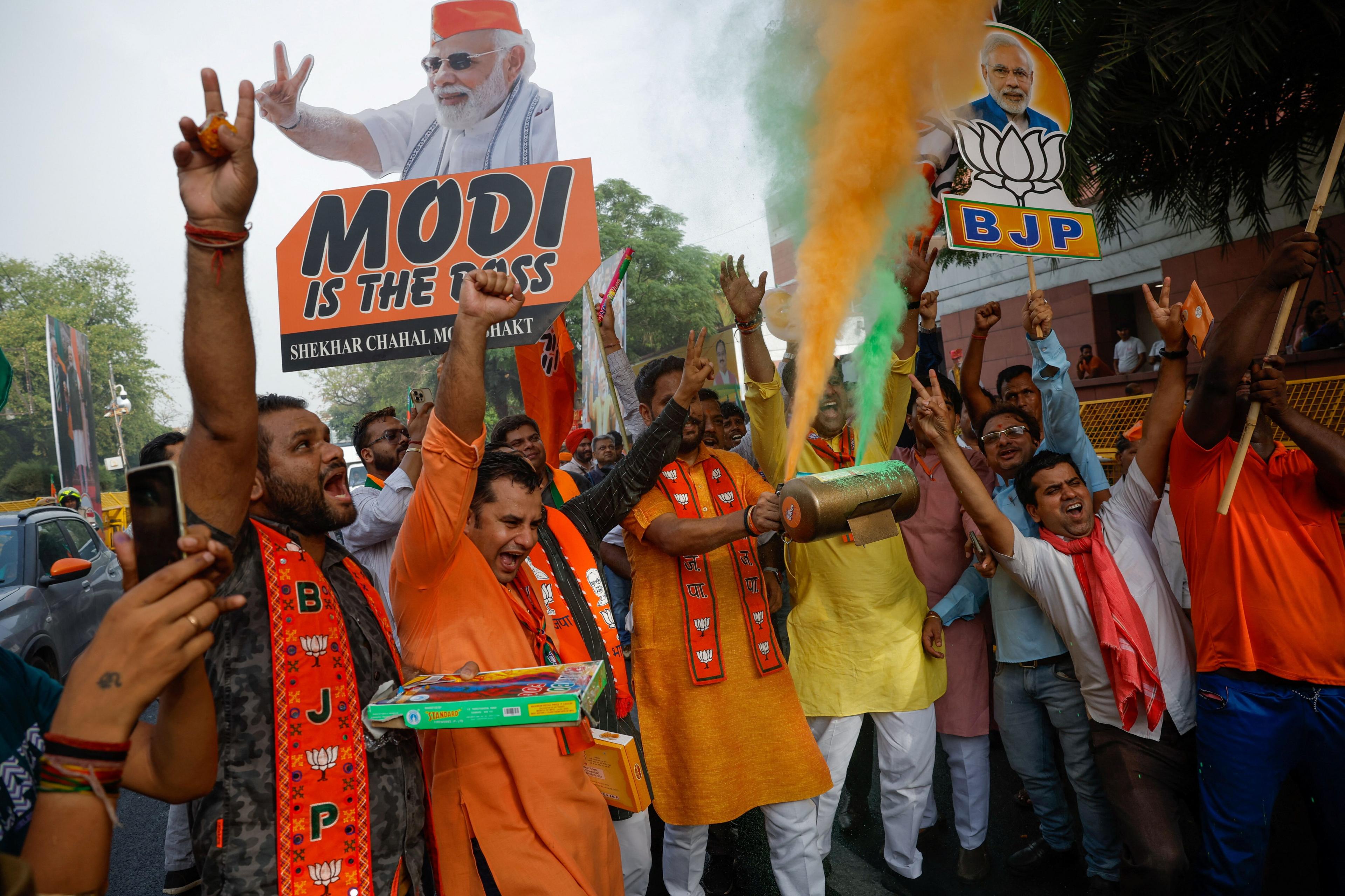Modi to be sworn in as India's PM on Sunday
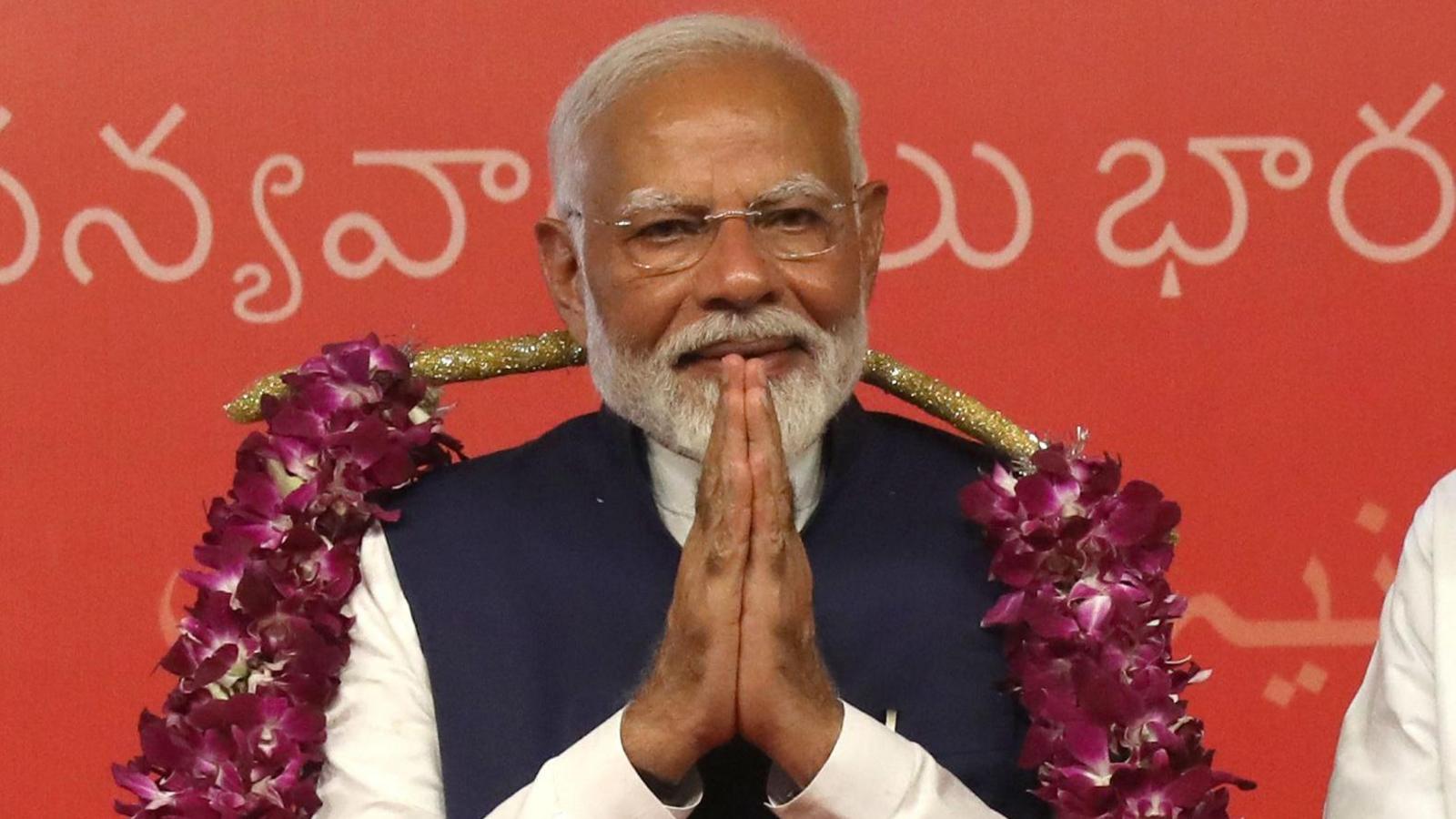
Mr Modi's oath-taking ceremony is set to take place on Sunday
- Published
Narendra Modi, leader of the Bharatiya Janata Party (BJP), is set to take oath as India's prime minister for a record-equalling third term on Sunday.
A senior party leader said that the ceremony would take place at 6pm local time (12.30 GMT).
On Tuesday, a BJP-led coalition, the National Democratic Alliance (NDA), won the general election with 293 seats.
The results were unexpected as the BJP did not win an outright majority as several exit polls had predicted.
This led to a couple of days of uncertainty over whether alliance partners would back Mr Modi and the BJP or negotiate with an opposition bloc to try and form the government.
But on Friday, NDA leaders unanimously backed Mr Modi as the leader of the coalition and their prime ministerial candidate.
At the meeting in capital Delhi, Mr Modi thanked his allies and said that the NDA would make every effort to govern the country well and take it forward.
"NDA has completed around three decades [as an alliance], this is no ordinary thing. I can say that this is the most successful alliance," he added.
The BJP won 240 seats in the election, several seats short of the 272 required to get a majority in India's 543 member parliament.
However, two key BJP allies, the Telugu Desam Party (TDP) and the Janata Dal (United) (JD(U)), won 16 and 12 seats each in their respective states, pushing the NDA comfortably over the half-way mark.
Media reports had earlier speculated that the opposition alliance, which won 234 seats, might approach the TDP and JD(U) to support the bloc and stake claim to form the government.
Friday's announcement by the BJP has put that speculation to rest.
In the coming days, the coalition will announce the names of ministers and assign key portfolios.
There will also be interest in what concessions - such as key ministries or financial benefits to their states - might be granted to regional parties to keep them within the alliance.
Media reports suggest that TDP leader, Chandrababu Naidu, might ask for his state, Andhra Pradesh, to be given special status in exchange for his support.
This status grants a state certain financial benefits for its development.
In 2018, Mr Naidu had left the NDA due to disagreements over this very demand. He re-joined the alliance months before this year's general election.
There has been no official statement by his party about such a demand.
On Wednesday, Mr Modi submitted his resignation to President Droupadi Murmu, and the parliament was dissolved, a formal step before a new prime minister and MPs are sworn in.
Related topics
Read more India election stories
- Published5 June 2024
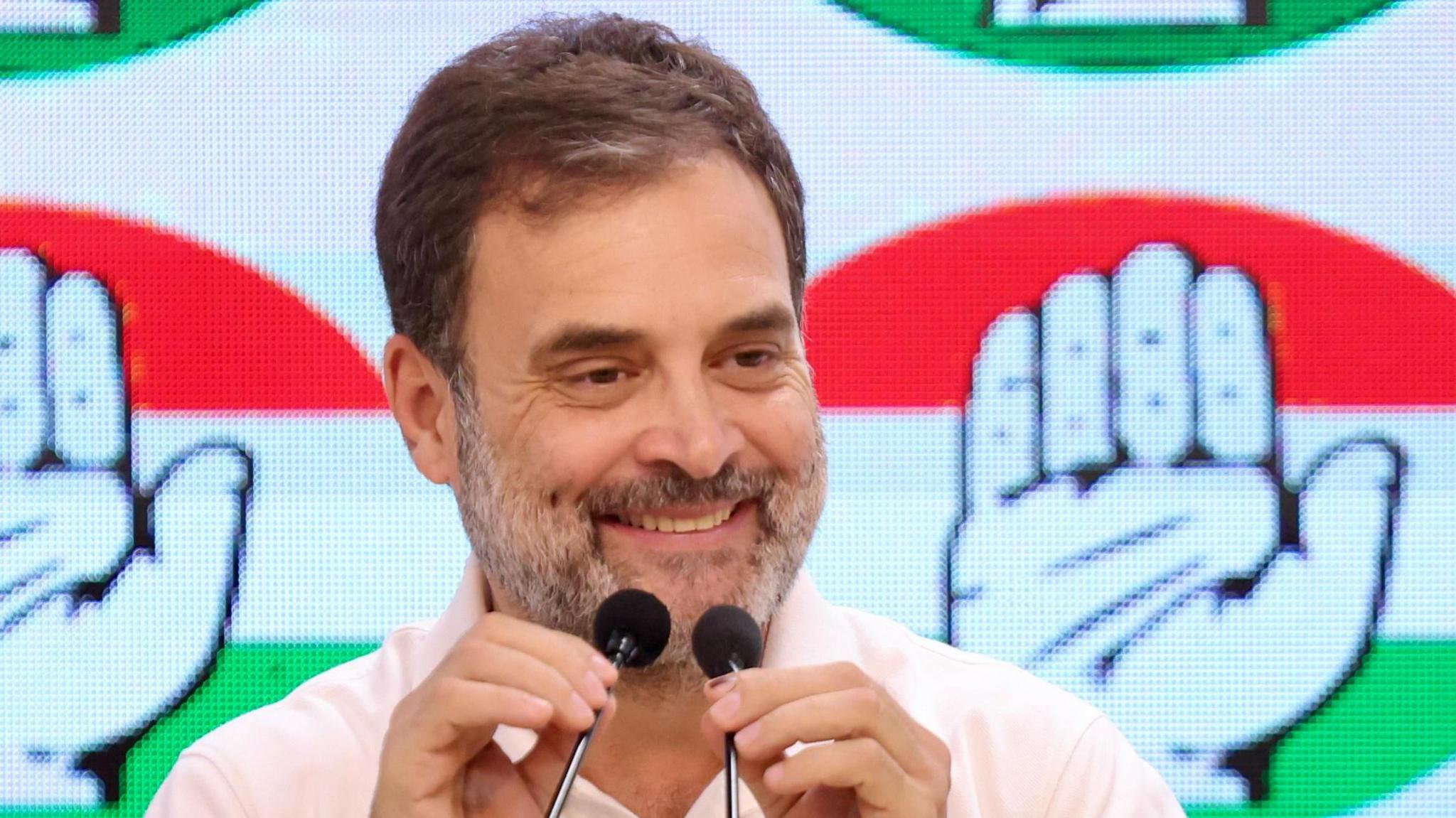
- Published4 June 2024
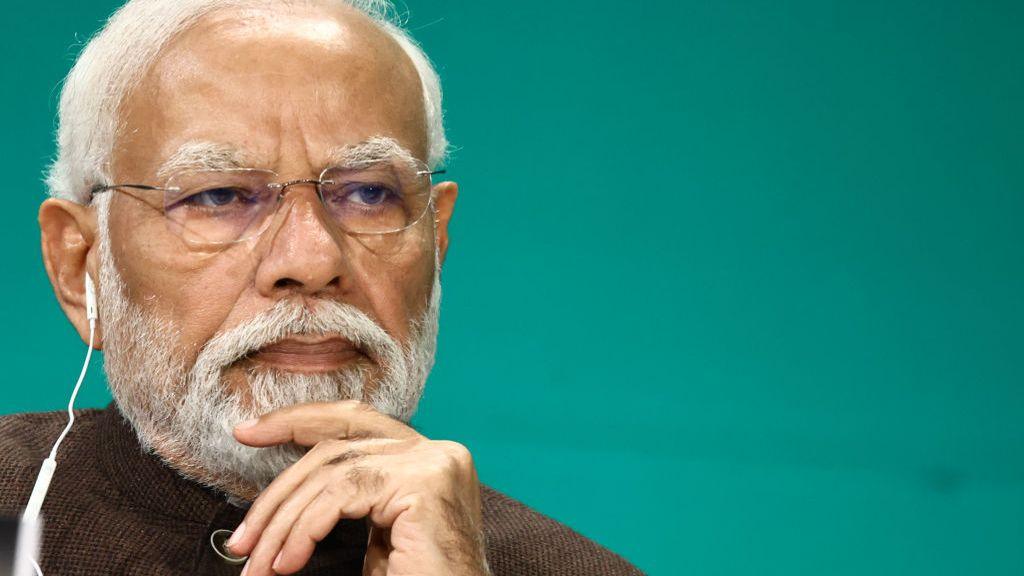
- Published7 June 2024
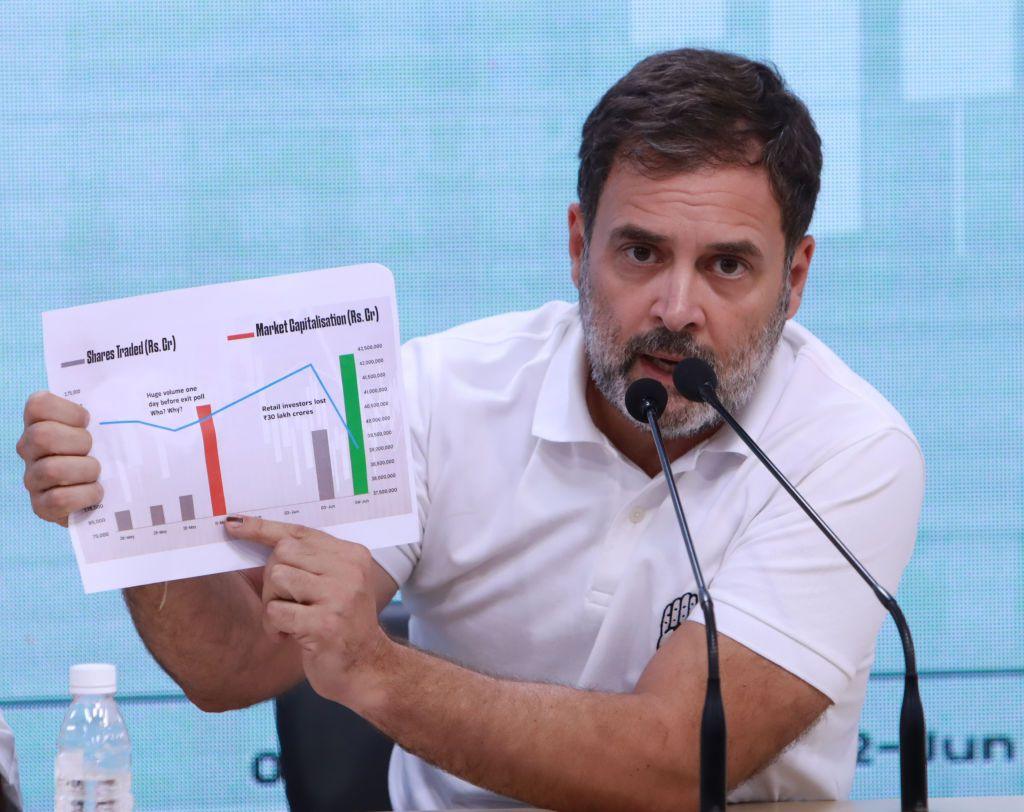
- Published5 June 2024
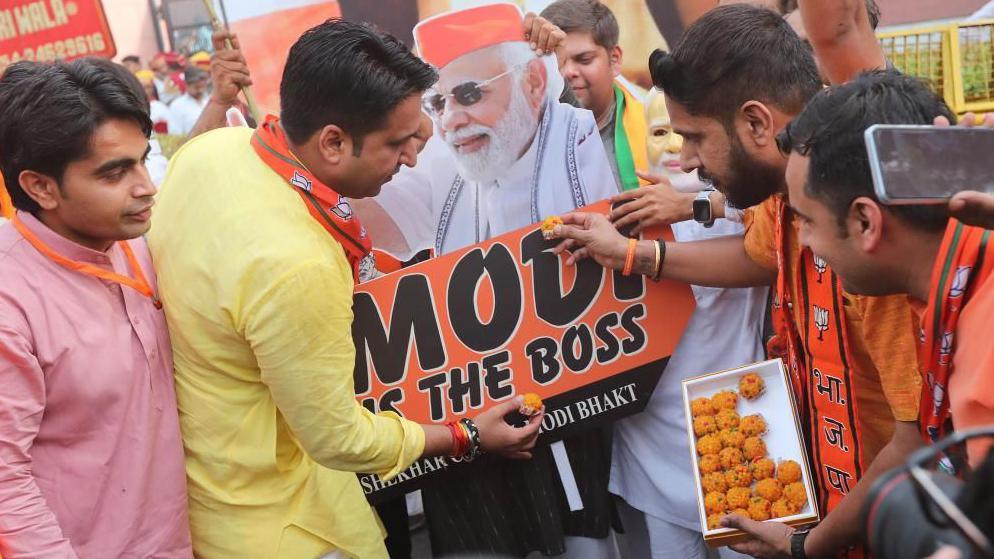
- Published4 June 2024
